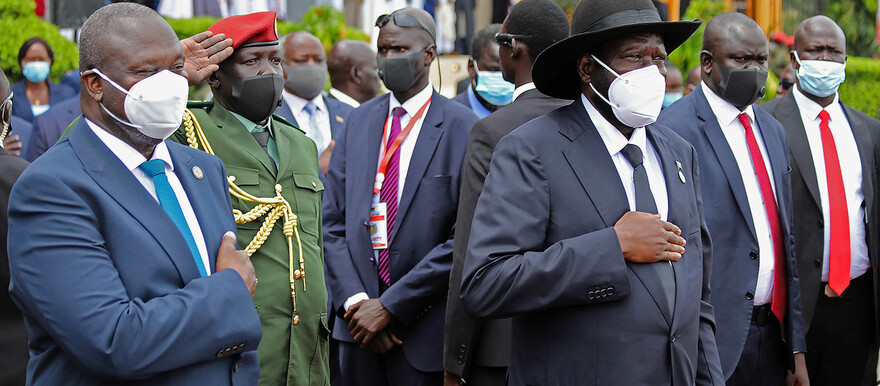Conditions are not yet in place to enable the holding of free, fair, and peaceful elections in 2023 in South Sudan, speakers told the Security Council on Monday as members explored ways to address outstanding issues during the remaining 12 months of the three-year transitional period established under the Revitalized Agreement.
Riya William Yuyada, a human rights and peace activist with Crown the Woman, a local feminist non-governmental organization promoting women’s human rights in South Sudan, in her briefing, said that conflict had become endemic.
“We are tired of sharing the same stories of rape, child marriage, war, trauma, and loss,” she said.
After enduring decades of conflict, “the resilience of South Sudanese is fading”, Yuyada noted, adding that since the signing in 2018 of the Revitalized Agreement, there has been “limited to no” progress in implementing crucial provisions related to security sector reform, constitutional and electoral reform, judicial reform and transitional justice.
Turning to the elections, she pointed out that there is general agreement among civil society members and citizens that “the ground is not ripe” for free, fair, and peaceful elections. The necessary legal and institutional framework is not in place with less than one year before the planned elections, she said, adding that the current insecurity and lack of confidence South Sudanese have, due to the failure to implement the peace agreement, can only have a detrimental impact on the legitimacy of the outcome, which risks further violence.
Therefore, she continued, any UNMISS support to an electoral process must be geared towards ensuring the process is safe, inclusive, and in alignment with international standards. The Council must also clarify that UNMISS, within its civilian protection mandate, is expected to ensure the safety and security of all voters, poll workers, candidates, and officials, as well as human rights defenders and activists.
Also briefing the Council, Nicholas Haysom, Special Representative of the Secretary-General and Head of the United Nations Mission in South Sudan (UNMISS) noted an “accumulation of unfulfilled commitments and the imperative to address them in the limited time at hand”.
Key pending benchmarks relate to the necessary conducive political and civic space, a secure environment, and technical and logistical prerequisites along with an agreed timetable for a free and fair electoral process to bring the transitional period to a close, he stressed. While UNMISS stands ready to support the electoral process, the Government has not yet pronounced on the Mission’s role, nor on a time frame for the elections, he added.
“As we enter the remaining twelve months of the transitional period, even if we acknowledge some progress, we are mindful of the accumulation of unfulfilled commitments and the imperative to address them in the limited time at hand,” Haysom said, “Key pending benchmarks relate to the necessary conducive political and civic space, a secure environment, and technical and logistical pre-requisites along with an agreed timetable for a free and fair electoral process to bring the transitional period to a close.”
He added that while UNMISS stands ready to support the electoral process, the government has not yet pronounced UNMISS’ role, nor on a timeframe for the elections.
“Critically, the Constitution-Making Process Bill is still pending, and the process of drafting a new constitution for the country remains stalled,” the UNMISS chief said. “Likewise, even though the parties remain engaged in the transitional security arrangements, the actual graduation of unified forces is yet to commence, with no agreement on the command structure.
Charles Tai Gituai, the interim chairperson of the Reconstituted Joint Monitoring and Evaluation Commission (R-JMEC) of the Intergovernmental Authority on Development (IGAD), updated the Council on the implementation of the 2018 peace agreement, saying that the accord has entered its fourth year, an indication of comparative success, compared with the previous 2015 agreement, which did not hold due to armed conflict that broke out within one year of signing.
He said the Commission has tasked the unity Government to review implementation status and develop a clear road map and strategy on how to complete the outstanding critical tasks before the transitional period ends in 2023. The road map should be consensus-based, with verifiable benchmarks and timelines, he added.




